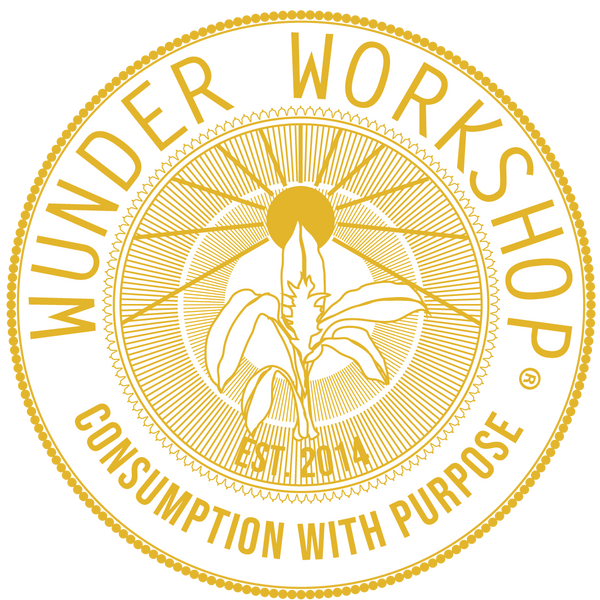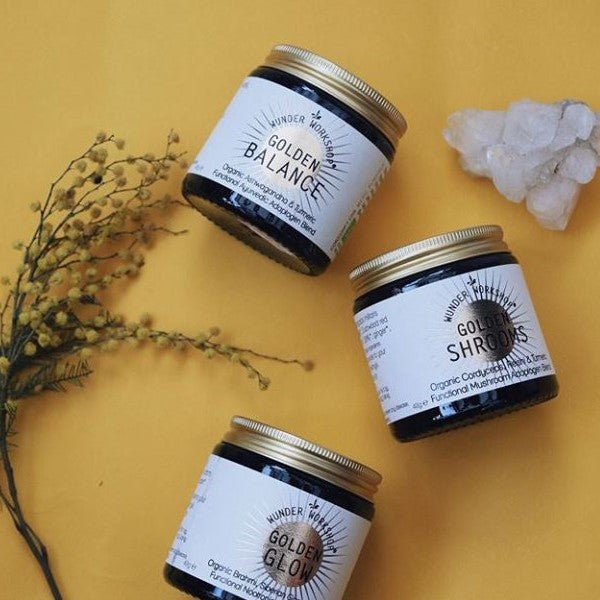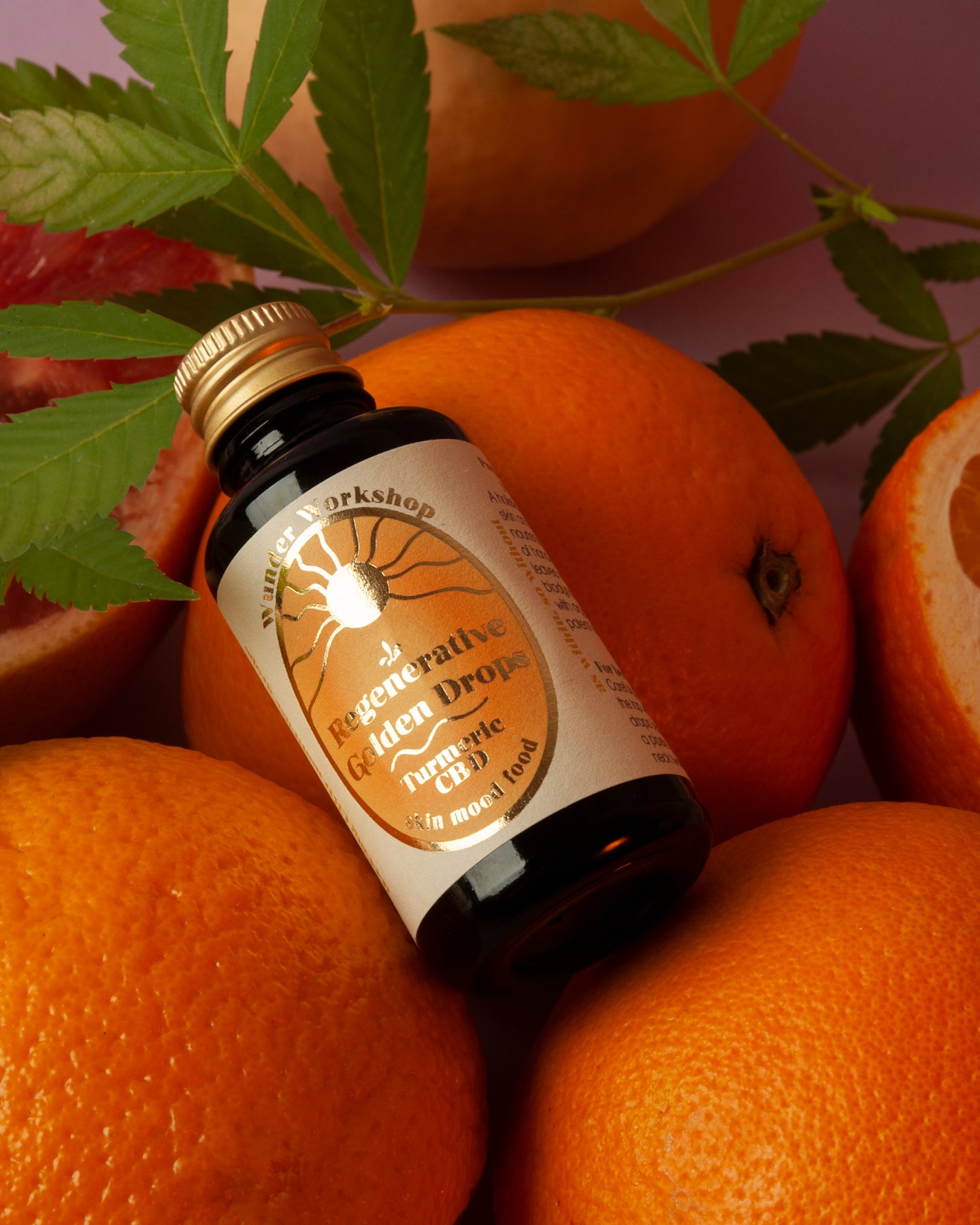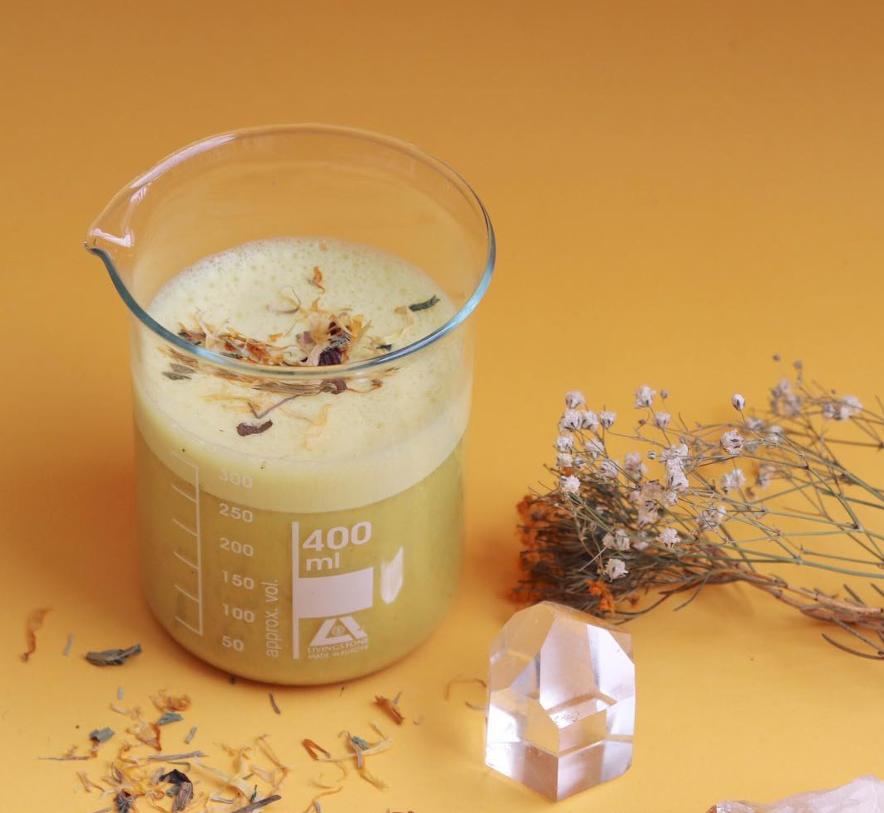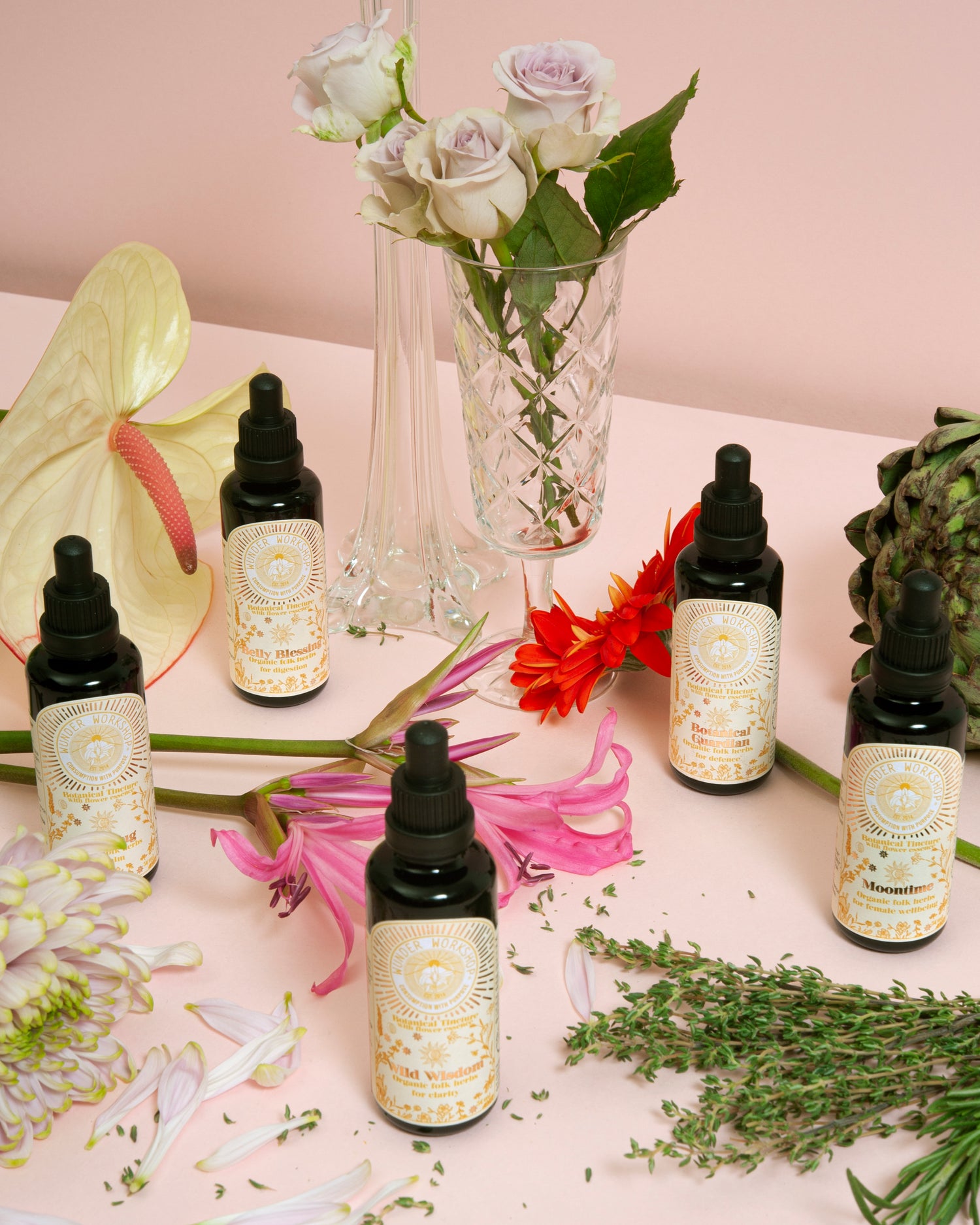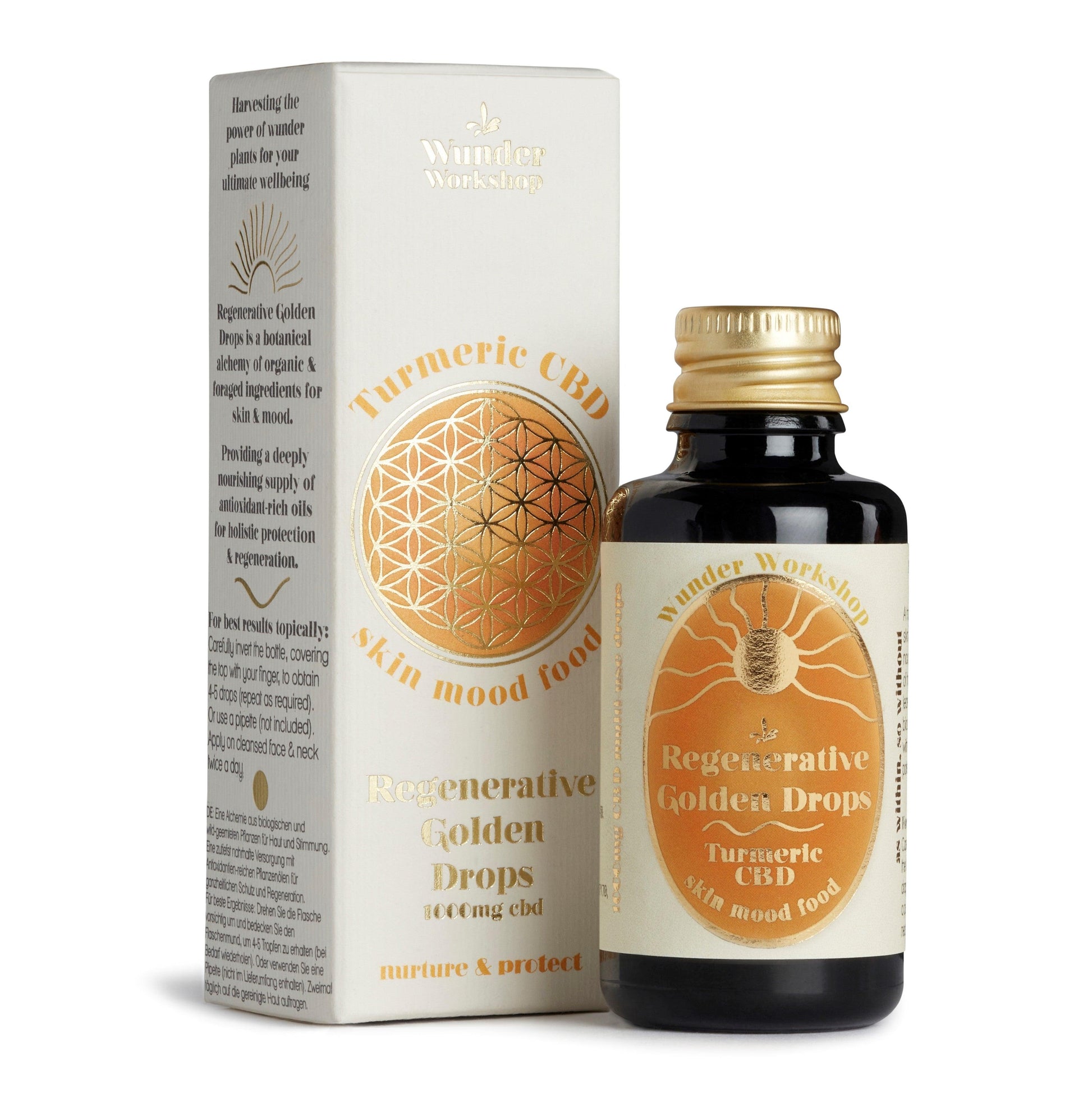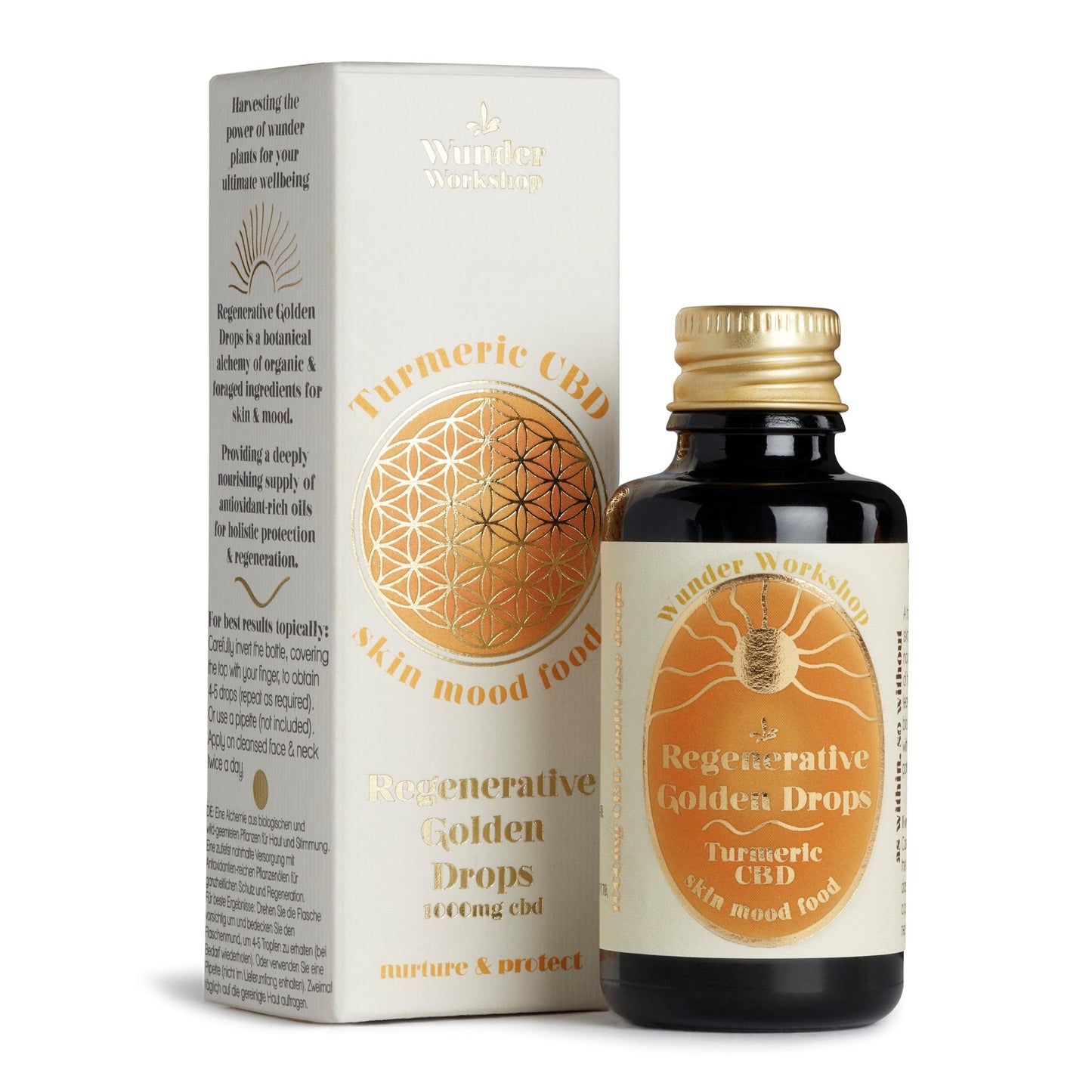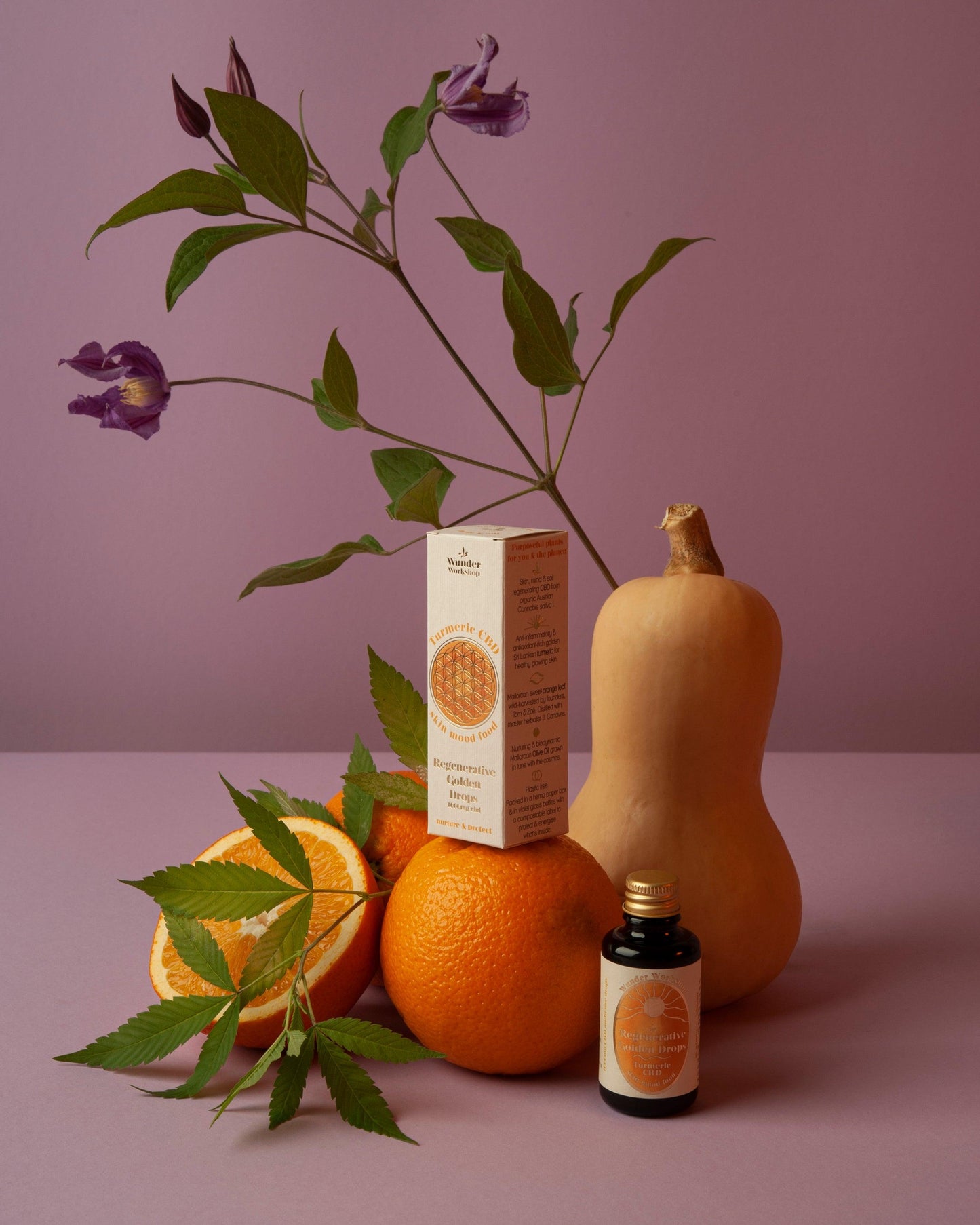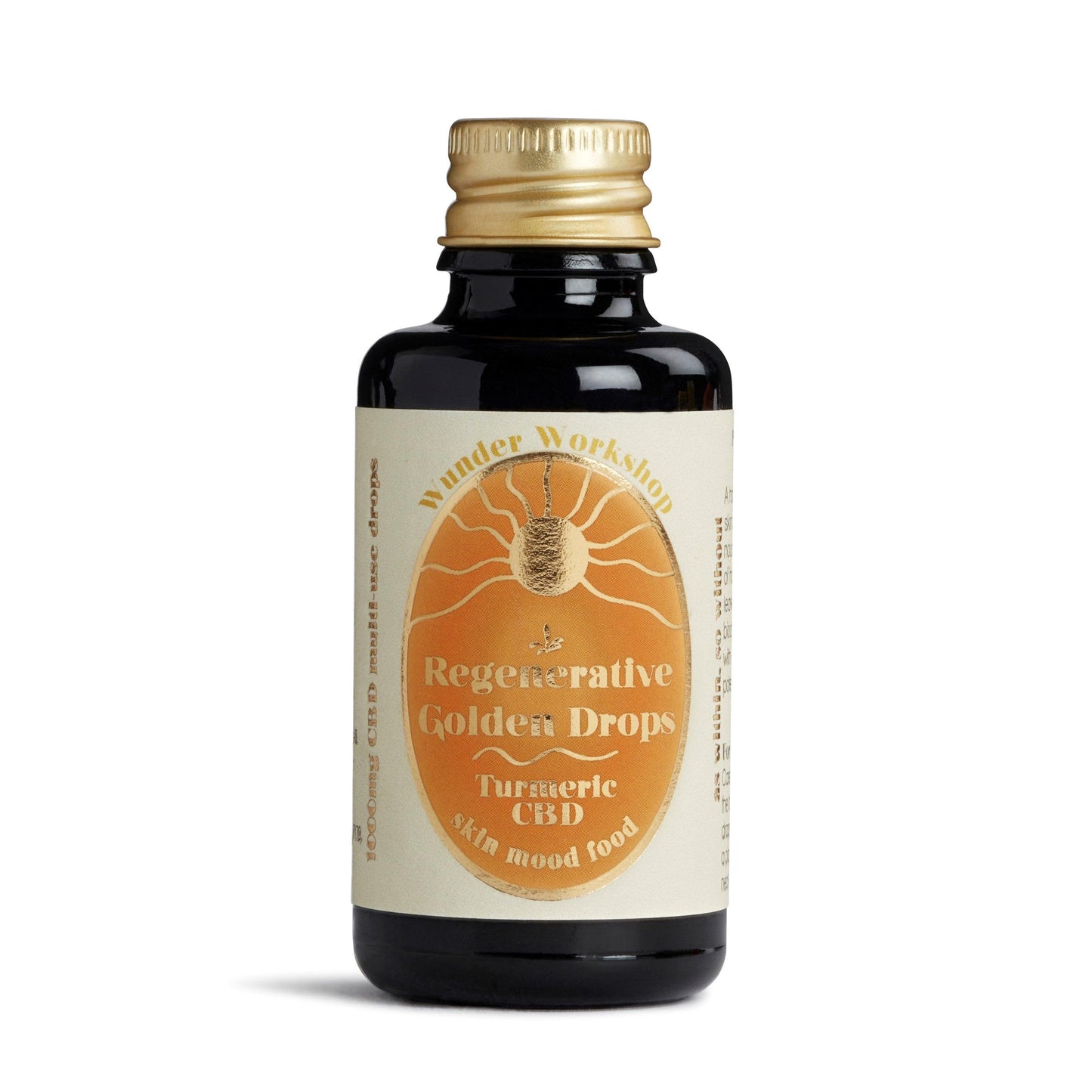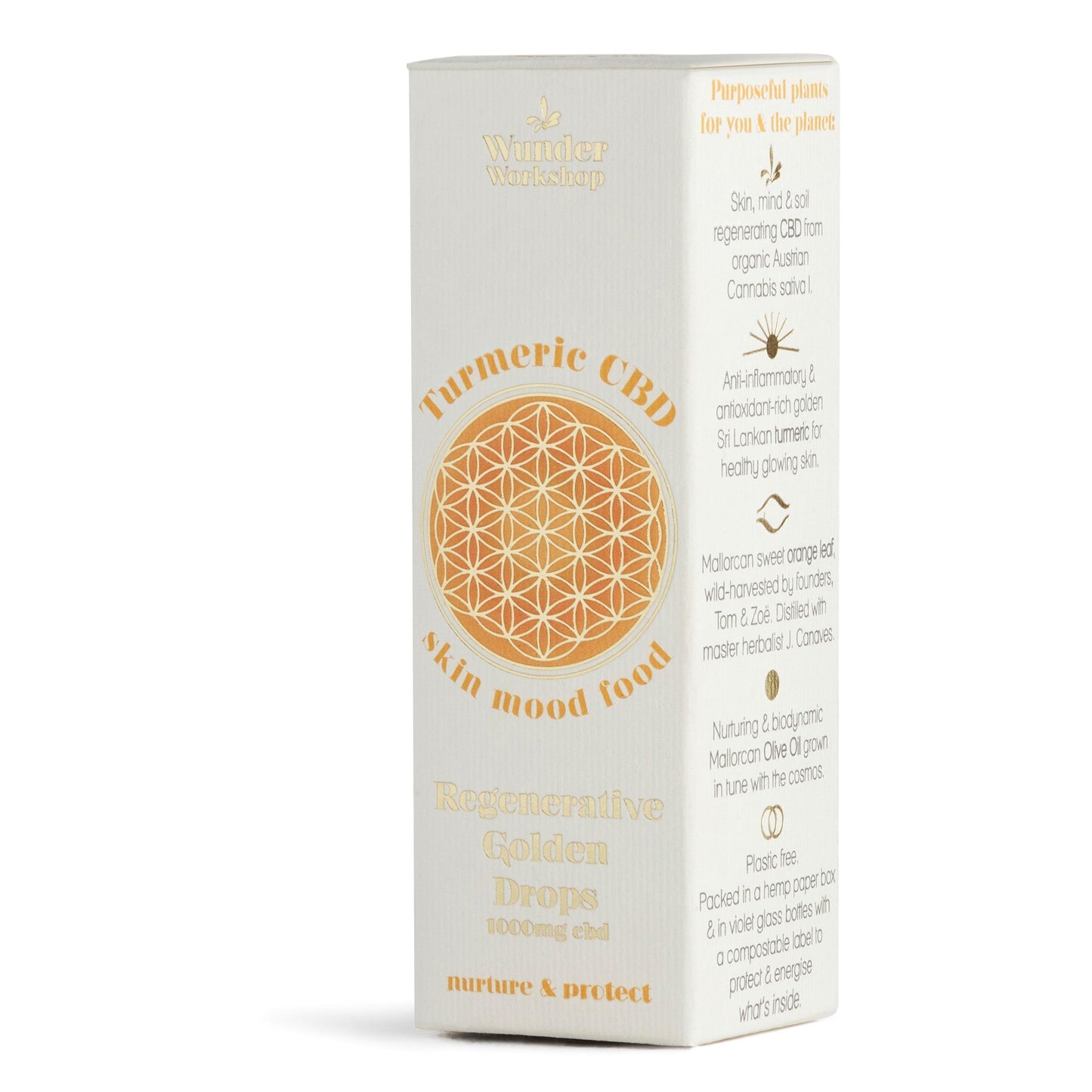LIDS LIDS LIDS…
This was probably our most frustrating mission as a business. When we first launched our Golden Adaptogens, we focused on the amber glass jars to keep the contents protected from light and ensure that our customers receive the highest quality herbs, as the quality declines faster in clear glass. However, these amber jars only came with a specific lid, namely a black urea lid, a thermoset plastic. A few months in, we started questioning these lids and what they are actually made, in particular, what happens to them once you finished using them.
Our supplier tried to convince us that they are biodegradable, which we were very doubtful about. So we started researching the exact chemical composition and manufacturing process, and we finally got on the phone with the CEO of the only manufacturer who produces these and supplies them world-wide from Italy. He said Chanel, Dior, Lancome and whatever other luxury perfume and cosmetic brands also use them, so we shouldn’t make such a fuss. We asked him to spell out exactly what happens when you throw it in your bin and he eventually admitted that they will always end up on a landfill as they can’t ever be recycled. It broke our heart and we made it our mission to find the best solution for our jars. We also begged our supplier to stop telling customers that they are biodegradable, as it was just a big fat lie and companies that aren’t as thorough as us might just fall for that. Once you know about the thermoset plastic lids, you will keep seeing them everywhere… just imagine the mountains of lids that will never ever go away!
We started searching for bamboo lids, but all bamboo lids have an inner plastic ring attached, which is there so that they can screw onto a jar and seal properly. We wanted recycled metal but they didn’t exist in the right size for these jars, so we eventually decided to get recycled tin lids made in the size for our jars. A big investment from our side, but so worth it.
Not all metal lids are the same, we soon noticed that the tin lid manufacturer kept pushing us to get inner plastic seals on the inside of the lid, for extra protection, which we decided against. If you look at most metal lids (such as honey lids or drink bottles) they all have a very thin plastic lining inside. This is called PVC or Plastisol, and is normally applied to metal lids in a ring shape on the inside of the lid at the point where it will match up with the landing of the bottle/jar. The environmentalist group, Greenpeace, has advocated the global phase-out of PVC because they claim dioxin is produced as a by-product of vinyl chloride manufacture and from incineration of waste PVC in domestic garbage. Plus, this plastic layer makes the whole lid un-recyclable as they are not separated by any waste management facility. Which is so upsetting, as metal lids, just like glass, have the possibility to be endlessly recycled without requiring new raw materials.
This brings us to the next point:
LABELS
In order for our glass jars to be recycled, they must have a label and adhesive that is recyclable. You might think that the label is paper, and surely recyclable, but often this is not the case. The adhesive glue that attaches the label to the jar is hard for recycling facilities to separate. So we have opted for a label that is fully compostable and applied with a natural adhesive, made from renewable raw materials. This means the glass jar is also fully recyclable, as the label washes off in the waste management facility and will decompose over time without releasing toxic waste products.
RECYCLABLE PAPER PACKAGING
Our Instantly Golden blends were packed in pouches that protect the quality of our ingredients for the longest possible time, but we decided to move these into 100% recyclable paper cartons and a home compostable foil bag inside.
These are the same materials we use for our Raw Chocolate Bliss bars, the paper is home compostable and so is the inner foil protection.
We only used vegetable inks.
TIN JARS
We decided to move away from our clear glass jars that we used for the Golden Teas and our Golden Turmeric powder, and pack them in recycled tin. This allows us to protect and maintain the quality of the ingredients inside, whilst retaining their ability to be recycled.
Misleading & “Green-washing”
You may have come across bio-plastics (PLA) lately, as it’s a big buzz word. But the promise of their improved sustainability unfortunately is an empty one, and they can actually cause more harm than good.
Bio-plastics might be made from plant derived resources rather than oil, but they nonetheless create exactly that what we want to avoid - namely a plastic or a product that is infinitely difficult to destroy. These bio-plastics could potentially be worse for the environment than conventional plastics, according to recycling expert Arthur Huang. Switching to plastic made from plants instead of fossil fuels would require vast amounts of farmland, plus the plastic will still end up on the landfill. Also, when it ends up in the normal recycling stream it contaminates the other real plastics and therefore means that it makes the whole recycling system weaker.
Biodegradable & Compostable vs. Home-compostable
There’s a big difference between these definitions and many companies have begun to use the terms loosely to appear greener than the reality.
If a product is labeled “compostable” or “biodegradable”, it means it can only be composted on an industrial level. The catch is that at the moment there is only a few of such industrial composting sites in the UK, and none of our household waste will end up there! The solution? Adding it to your normal bin, where it will end up on landfill… disappointing right? No doubt, it will degrade over time, but as the temperature and pH level play a huge role in this process, and are not set according to the optimal levels, it could take perhaps 100 years instead of 500 years for these biodegradable products to start breaking down.
Home-compostable, on the other hand, does not require the industrial level conditions to begin the degradation process. Instead, a well functioning compost heap in your garden or indeed a food waste bin can break it down in a matter of weeks!
What do you do once you finished a Wunder product?
Primarily, we believe re-using or re-purposing is the most sustainable option. We hope you find our packaging useful to store other things in or useful to buy new loose ingredients at zero-waste stores. For example, our Golden Turmeric Powder and Golden Turmeric Teas are available from the zero-waste store Liberte Cherie in Notting Hill where you can get refills. But re-use them for anything from loose rice, sesame seeds, salt, home made face cream, you name it. Get creative and show us how you have re-used them!
If re-using them isn’t an option, you can do the following:
Tins, paper cylinder and chocolate boxes: please dispose of in your normal recycling system. Luckily, metals and paper get wide recycled in the UK. It is just plastic that get’s shipped away as it isn’t as valuable or easily recycled.
Chocolate box: can also be home-composted.
Inner foil in the new Instantly Golden cylinder and Chocolate Bliss Bars: can be fully home-composted, as it’s made from a by product, namely wood-pulp. If you don’t have a compost bin, you can add it to your food waste or normal bin, but not in the recycling bin, as it looks too similar to plastic that it will contaminate the recycling waste management system.
Labels: Please add them as above to your normal bin if you decide to remove them from the jar/tin. They will deteriorate naturally on landfill without releasing toxins. If they are still on the jar/tin, throw it in the recycling bin and they will be washed off and naturally degrade.
When you order from us: the packaging box is made from recycled paper and is fully recyclable, the packaging noodles are made from corn starch and are fully home compostable (you can even watch them disappear with a little water!).
TerraCycle: if we have any plastic waste, we pay for it to be collected by TerraCycle, as we don’t trust the normal waste collection in regards to plastic. The UK ships most of it’s plastic waste to developing countries, but we find this out of sight out of mind approach horrific. So we rather pay for a service such as TerraCycle that work with facilities to bring recycling solutions to large volumes of waste that are not currently being recycled in the UK.
We are not perfect and are constantly striving to improve. But for now, we are pretty happy with what we can offer you without leaving a big mark on the planet. Our journey to improve our planet should never be our unique selling point, as that would defeat the whole mission, we are happy to share resources and contacts for anyone to find a better solution too.
If you have any questions or suggestions please reach out to us and let us know at hello@wunderworkshop.com.
